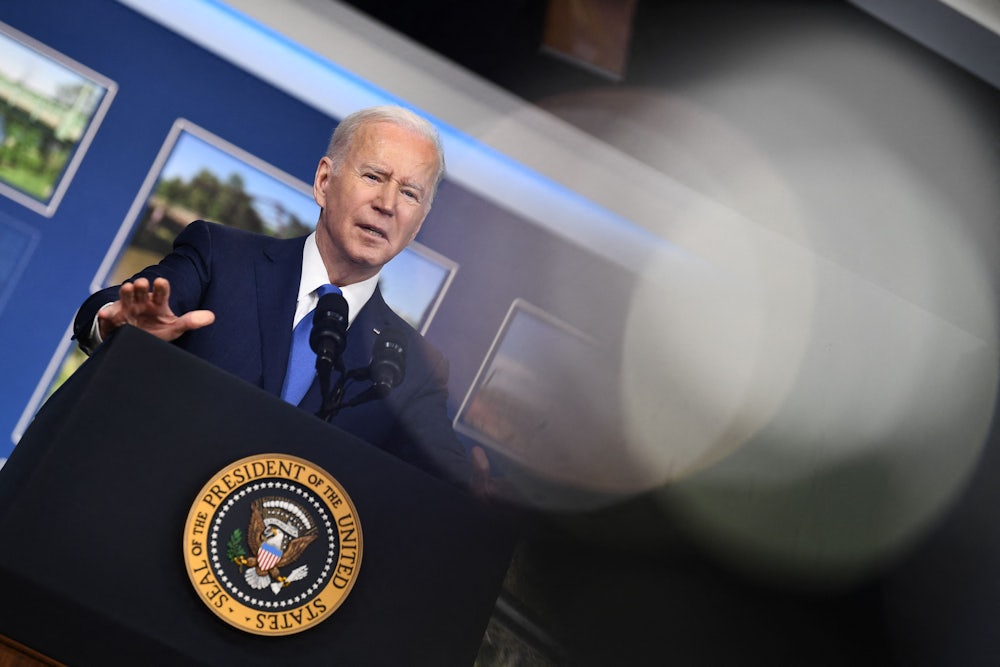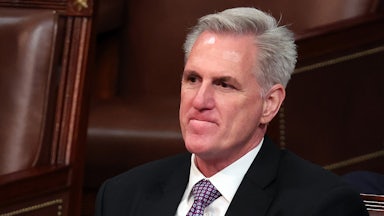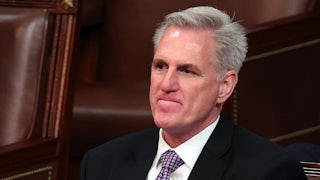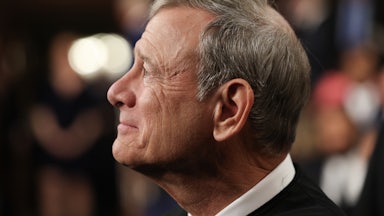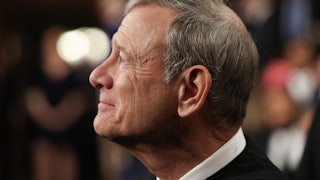There are five headlines about presidencies, driven less by reality than by the political press’s addiction to a preset narrative arc. President Joe Biden has arrived at number three.
Here are the Five Headlines:
“Candidate Wins Mandate” This is a beloved cliché that’s objectively false in the twenty-first century, when presidents often win with a mere popular-vote plurality, and sometimes not even that. No presidential victor has exceeded a 53 percent popular-vote majority since incumbent Ronald Reagan in 1984 (59 percent), and nobody’s broken 60 percent since incumbent Richard Nixon in 1972. A more accurate cliché would be: “In Still-Divided Electorate, Candidate Narrowly Wins Presidency.”
Biden won 51 percent of the vote, besting Trump’s 46 percent in 2016, which wasn’t even a plurality. So yes, Biden’s election was much more of a mandate than Trump’s. But it still wasn’t a mandate. Biden didn’t win a true majority in the Senate, just a 50–50 split, with the vice president casting the tie vote. He didn’t even get that until the afternoon of (ironically enough) January 6, when Jon Ossoff was declared the Senate victor of his Georgia race. Biden won a House margin in single digits. Everything that’s happened during the past year reflects that boringly unswerving reality.
“New President Faces Headwinds” The problem with this cliché is not that it’s never true, but that it’s always true. Nearly every policy worth noting is going to face resistance somewhere. Even President Franklin Roosevelt’s declaration of war against Japan, submitted to Congress after the bombing of Pearl Harbor, which killed 2,400 people and wiped out most of the Pacific fleet, passed Congress without the vote of Representative Jeannette Rankin, a Montana Republican.
Google “Biden” and “headwinds” and you get back 1.3 million results. Reporters saw headwinds against even the infrastructure bill, whose passage was never seriously in doubt. But the headwinds began in earnest last fall, as it became increasingly clear that the Build Back Better bill was not going to pass.
The headwinds in question were two conservative Democratic senators, Kyrsten Sinema and Joe Manchin, whose support was always going to be a problem. Sinema’s objections to the bill were arguably more unreasonable—she opposed any straightforward raising of tax rates—but Manchin’s were more unpredictable, and therefore did not lend themselves to appeasement. Biden can be faulted for being slow to grasp that Manchin was never really negotiating, but rather positioning himself for reelection in 2024, when Donald Trump may head the GOP ticket. But I wouldn’t rule out the possibility that Manchin himself was slow to figure out that negotiating in good faith wouldn’t serve his electoral interest. (I certainly was.)
“Amateur night at the White House” The “amateur night” insult is my favorite White House coverage cliché, because it so perfectly combines fury with a complete lack of specificity. It’s very early days seeing this precise phrase used against Biden, so perhaps I’m jumping the gun in situating Biden at this stage. Lexi McMenamin of Teen Vogue referred January 14 to “public officials who are acting like it’s amateur night at the Apollo on live television” by way of describing recent Biden administration comments about Covid-19. But the “amateur night” trope hasn’t yet penetrated the major dailies. Perhaps they maxed out on it during the Trump presidency, which was (among other things) an unending sequence of luridly bad decisions made by people who had little to no understanding of their public responsibilities.
Still, the “amateur night” spirit is alive and well in the press’s Biden coverage. Biden has “not done a good job managing expectations” around Covid, says Bill Galston of the Brookings Institution, per The Guardian. Biden said things were getting better, then things got worse with the delta and omicron variants. What an amateur! Everybody knows that the president is supposed to … er … what? Anticipate which mutations will spread, which won’t, and what the health consequences will be?
Granted, Biden can be faulted for moving slowly on sending out free at-home Covid tests. In an interview on December 23, he said he wished he’d done it two months earlier, but as of January 18 they were available to order. Biden should have moved earlier on Covid mandates, too, even though the Supreme Court, rather surprisingly, eliminated one of these last week. But Biden did eventually impose these mandates, and at the very least, announcement of the never-enforced OSHA mandate on businesses employing more than 100 workers prompted many such businesses to impose vaccine mandates on their own. Today the omicron wave appears to have peaked in several of the places where it first hit, including New York City, Washington, D.C., and Chicago. We may be in the earliest stages of seeing Covid-19 shift from being primarily a public health problem to primarily an economic problem.
The economy, for the record, is in pretty good shape. Unemployment is down to 3.9 percent, just a whisker higher than the 3.5 percent before the pandemic. The “quits rate” remains historically high at 3 percent, which is good news, not bad, because it shows workers feel confident. New hires are also robust, so it looks like workers are trading up.
The bad news is that inflation is up 7 percent over last year. Biden’s let inflation spin out of control! What an amateur! But that’s driven by Covid-19 and supply chains, and if Biden’s blundered here, it’s only through suggesting he has any control over inflation, when in truth he has none; that’s up to the Federal Reserve. (As I’ve written elsewhere, Biden’s moves on antitrust, while worthy in themselves, won’t ease inflation.) And anyway, inflation is hardly the problem we anticipated in the spring of 2020 when the pandemic pushed unemployment up to 14.7 percent. Too much money chasing too few goods beats the deflationary alternative of too little money chasing too many goods.
“Administration in Disarray” We aren’t there yet. This is the stage where members of an administration start bad-mouthing one another on a not-for-attribution basis; where financial scandals engulf Cabinet and subcabinet members; and/or where Democratic members of Congress who aren’t Manchin or Sinema start griping about White House leadership. We never really got there in the Obama administration; in the Trump administration, we got there within the first month, if not the first few hours.
“His/Her Presidency Is Over” “It’s never too early to begin the death watch for a presidency,” my friend Jack Shafer, media columnist at Politico, advises me. “You’re always rewarded.” But journalistic death notices for Biden’s presidency remain at least a few months off. They tend not to cluster until after a president’s first two years in office.
I’ve written before that Democratic presidents usually get only two years to govern with a free hand; after that, they typically lose their congressional majorities and can govern only through regulations. Republicans get longer presidencies because their only real legislative goal is to pass tax cuts, which they achieve right away. After that, they can start wars. (One saving grace of Trump’s presidency is that he never did that.)
Reporters typically apply the “his/her presidency is over” construct to describe not the loss of a legislative majority but a drop in the polls. Presidents tend to lose support after their second year. Biden’s slide began during his first year, but that doesn’t make him an outlier: That also happened to Trump, Obama, Clinton, Reagan, and Carter.
What’s important to remember is that a ruling from the press that your presidency is over has little bearing on whether you’ll win reelection. Time famously pronounced Clinton “The Incredible Shrinking President” on a June 1993 cover. Three years later, Clinton won reelection, widening his popular-vote plurality from 43 to 49 percent. Obama and Reagan both won reelection after falling in the polls. Most dramatically, George W. Bush won reelection despite his popularity nosediving from 71 percent in April 2003 to 50 percent the following November. Thereafter it stabilized in the high 40s to low 50s through 2004, before tumbling again during his second term to the high 20s to low 30s. Nixon won the only bona fide popular-vote landslide of the past half-century without a corresponding spike in popularity, and of course he had to resign two years later in disgrace over Watergate. Sic transit gloria mundi.
I hope Biden never gets to headline five, but if he does, that doesn’t mean he won’t get reelected (or that, should he bow out, Kamala Harris or some other Democrat won’t win). In the meantime, whatever difficulties Biden’s facing right now shouldn’t distract us from the logarithmic improvement we’ve seen in governance during the past year. It may be a low bar, but Biden is still doing unimaginably better than the last guy.
The Five Headlines don’t cover that. Maybe it’s time to add a sixth.
